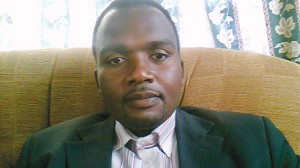
THE instalment last week explored the basic qualities that define a nation, that is, any society.
A case was made that many societies or nations are crumbling because economic and socio-cultural changes have undermined the expression of genuine love and conscience among citizens.
One major attribute of the so-called modern world is the predominance of self-interest and unbridled materialism as driving forces of human activities including economic activities.
The results over the years are evident for all to see in the co-existence of butter mountains in developed countries with the chronic poverty of many developing economies.
It would have been better if advanced economies shared their butter mountains with emerging economies.
The major problem is that those countries that have a lot to offer to the world just keep accumulating economically scarce resources instead of ensuring that they are distributed optimally worldwide.
Poverty and malnutrition in Africa, Asia and South America are multi-billion dollar industries for many developed countries in the sense that foreign non-governmental organisations actually boost rates of employment of their mother countries through the deployment of personnel ostensibly to alleviate lack.
There are few scholars who can dispute the fact that for many African countries to pull out of poverty, external help is needed.
- Chamisa under fire over US$120K donation
- Mavhunga puts DeMbare into Chibuku quarterfinals
- Pension funds bet on Cabora Bassa oilfields
- Councils defy govt fire tender directive
Keep Reading
After all is said and done, developed countries, especially of the western hemisphere, are where they are because they siphoned resources from developing countries during the time of the slave trade and colonialism.
This implies that it is the moral duty of developed nations to help developing countries emerge from protracted economic problems and crises.
Nevertheless, much of the burden to pull out of the underdeveloped state lies on developing countries themselves.
Knowledge refers to the body of data, information, facts or experiences that have been gathered or accumulated by a person or people in their interaction with the external environment.
Knowledge facilitates interaction with the world in which all people live.
In the absence of knowledge, it is not possible for any person to harness resources that are available in the natural, economic and social environments.
It is a fact of life in many nations that knowledge is power because those who are powerful in society happen to know something that the weak or dominated do not know or do not appreciate.
Knowledge is so important because of its direct relationship with capacity.
It is impossible to increase or enhance the capacity of a people without changing their world view or body of knowledge.
In most cases, capacity building processes involve imparting knowledge to vulnerable and underpowered (as opposed to disempowered) groups of people in society.
Knowledge by nature is dynamic, that is, genuine knowledge is always in a state of flux because incessant changes which are part of life make knowledge intermediate instead of being ultimate.
Knowledge is also always in a state of flux because reality is both complex and always changing.
If reality was static, it would be possible to know things as they are. If things were known as they are, it is reasonable to believe that there would be no room to acquire further knowledge.
The main feature of modern society is the importance of knowledge as an economic resource.
Countries that leverage their production processes on advances in information communication technologies (ICT) are highly likely to grow economically.
ICT has conferred competitive or comparative advantage to economies such as China, Japan, Hong Kong and Vietnam.
A clear ICT policy and the mainstreaming of ICT into all economic and business activities are strategies which may offer many African countries including Zimbabwe the hope to advance economically.
Power means many things to many people. To a politician power is the ability or capacity to exert influence or control over people.
To a businessperson power may be the capacity to command a consistent share of the market for a product or service. To a pastor power is spiritual or social influence over people usually through persuasive means.
Power is defined as the ability or capacity to do something or act in a particular way. Power can also be defined as the capacity or ability to direct or influence the behaviour of others or the course of events.
Power also means mechanical or electrical forces that facilitate economic and social life in the modern world.
Power from a socio-economic perspective is what the present essay is exploring. Power cannot be separated from authority.
The power that some people exercise over others is actually authority.
Authority is defined as delegated power or power that flows from an entity or entities that inherently have power.
Market power for instance is power that customers confer to businesses by patronising their products.
That is why some economics textbooks argue that the consumer is king (or queen).
When customers shift their demand (or brand loyalty) elsewhere, companies automatically lose their market power.
In ancient societies power was obtained and maintained through brute force.
Nevertheless, power in the modern world is obtained by good performance and it is negotiated.
Brute force alone can never ensure sustainable power for anyone in the modern globalised society because the flow of information or knowledge at low cost implies that the dominated are able over time to accurately evaluate their sub-optimal or constrained condition.
The forthcoming article will explore forms of power that are exercised by businesses in the modern world.
Ian Ndlovu is an economist based at the National University of Science and Technology (NUST) skilled in data analysis using SPSS, Gretl, Stata, Eviews and Microsoft Excel software packages. His research interests cover business, development, economic and e-commerce issues. He writes in his personal capacity.










